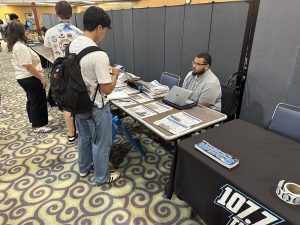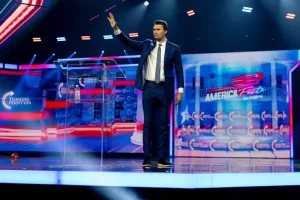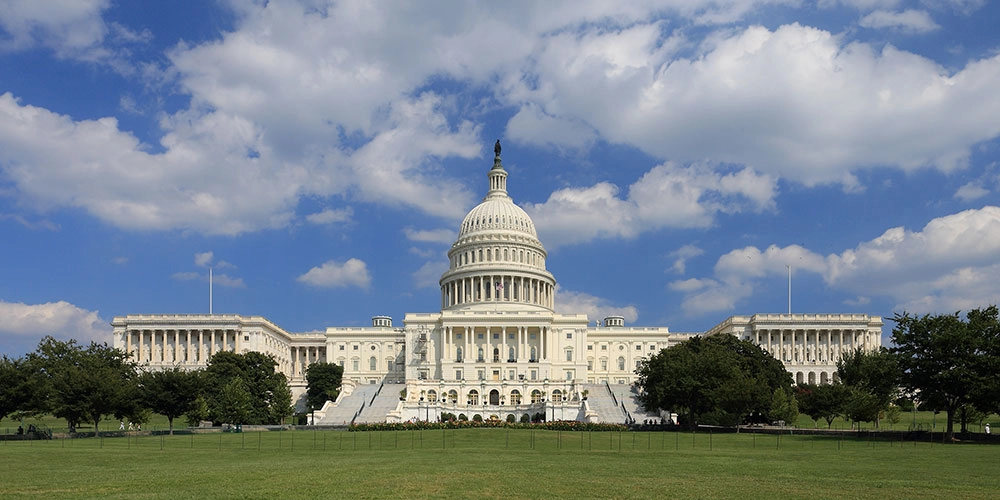Letter to the Editor: CCSU Made Me Write This…
May 10, 2023
For those who don’t know yet, I was punished for making it known that I disagree with the vile message being spread by our university’s Turning Point USA chapter. When some of my professors heard about this, they went out of their way to write a letter to President Toro about that punishment; they opposed how it was targeted at 3 student leaders* and that the assignment I was given did not fit the action I had done. The prompt was, “Please write a 4-page paper to show your understanding of what is hate speech, what is free speech, and how to peacefully protest.” Here is my essay.
*It should be noted that the university, of course, denies targeting student leaders—but I am not convinced.
It is often said that what is taught in school is not American history but American mythology: the story of America told by the dominant power group that portrays a “correct” version of its history. One of the most prevalent examples of this is Reverend Doctor Martin Luther King, Jr., whose story has been distorted in modern retellings. He is portrayed as the righteous civil rights leader who did it the ‘correct way’ and we don’t talk about Malcolm. It is in his writings—such as the letter he wrote from a jail cell in Birmingham, Alabama—that we see the whole picture. That picture not only included the March on Washington and the “I Have a Dream” speech, but the calls for civil disobedience that got him to that point.
“I must make two honest confessions to you, my Christian and Jewish brothers. First, I must confess that over the past few years I have been gravely disappointed with the white moderate. I have almost reached the regrettable conclusion that the Negro’s great stumbling block in his stride toward freedom is not the White Citizen’s Councilor or the Ku Klux Klanner, but the white moderate, who is more devoted to ‘order’ than to justice; who prefers a negative peace which is the absence of tension to a positive peace which is the presence of justice; who constantly says: ‘I agree with you in the goal you seek, but I cannot agree with your methods of direct action.’ ”
The ideals of this country were founded on peaceful direct action. What was the Boston Tea Party if not peaceful direct action? When given this essay and this platform, I want to take the chance to teach my fellow students about the lesser-known protests that are a part of the American people’s long history of standing against injustice. Shall I start with the AIDS die-ins—those protests that brought attention to the fact that the FDA was stonewalling the development of HIV treatment? Or perhaps the “Stop Cop City” protests, which highlighted that those who try to fight militarized policing and police brutality are often targeted unjustly by police. Either way, I will be ending with a discussion on free speech and hate speech because I have to.
In the 1980s, during the presidency of Ronald Reagan, the United States had a dangerous Christian nationalist leader. At the same time, a new disease called HIV/AIDS was starting to spread. Let’s be clear here, initially, we did not know what HIV/aids was, how it spread, or how to treat it—it took time to understand both what the virus was, how it spread, and more importantly how it did not spread. The disease was initially called GRID (“Gay-Related Immune Deficiency”) because it was first seen in gay men. There is a difference between not understanding a new disease and using a new disease to stigmatize minority groups. Because HIV/AIDS primarily affected minority communities, President Reagan did not take any action to address the deaths. In response to the government’s inaction, a group called ACT UP (AIDS Coalition to Unleash Power) organized peaceful protests in the form of “die-ins,” where individuals laid down in front of buildings and played dead, holding fake gravestones that read “killed by the FDA.” They were trying to convince the FDA to expedite clinical trials for AIDS drugs. They held die-ins at the FDA headquarters, blocking entries with ‘dead’ AIDS patients. Within days, the FDA agreed to meet with representatives from ACT UP, and within months, AIDS patients were allowed easier access to experimental drugs (Aizenman, 2019). The AIDS epidemic killed most of an entire generation of gay people at a time before the LGBTQ+ community was widely accepted. During the epidemic, fundamentalist preachers openly called AIDS God’s punishment for gay people, and it was easy for a Christian nationalist president to allow this to happen. Without the work of die-ins and protests, AIDS treatment would have been withheld.
Another great example of peaceful protest is a music festival held by the Forest Defenders outside Atlanta who are trying to stop Cop City, a large training ground for militarized police across the country. The land for this training center is some of the few untouched forest lands near Atlanta, and vitally important to native peoples in the area. There are a lot of individual protests to try to stop the development of the untouched forest as well as the adjacent goal of stopping the police training center that will lead to deaths at the hands of police. With this in mind, the individual action I want to focus on is a music festival that was held on the land that could become Cop City. The goal was simple: to physically occupy the land to hinder the development of Cop City. In the grand scheme of things, this protest was more symbolic than anything, as construction was stopped over the weekend (Lennard, 2023).
When an unrelated protest turned tense and property was destroyed, the police made the decision to sweep the forest. They found the people attending the music festival and arrested them without proof that they were the ones who had destroyed equipment. Later, the officers used the fact that the attendees had legal defense numbers written on their arms while they were protesting and mud on their boots (indicating they were in a forest) as evidence for their indictment on charges of domestic terrorism (Fessler, 2023; Lennard, 2023). What the action at Cop City has shown is that when you protest against police violence, there is no ‘right’ way to protest in their eyes.
Unlike what many think, including the Vice President of CCSU’s Turning Point chapter, free speech is more complex than “allowing people to speak without interrupting.” Free speech is a core American value that has its roots in the First Amendment, which states:
Congress shall make no law respecting an establishment of religion, or prohibiting the free exercise thereof, or abridging the freedom of speech or of the press; of the right of the people peaceably to assemble, and to petition the Government for a redress of grievances.
It is important to understand that the First Amendment prevents the government from restricting freedom of speech. In modern political discourse, many people claim that their speech is being taken away by corporations, students, or protesters. However, this is not accurate. “Congress shall make no law”—the key part of freedom of speech—is intended to prevent the government from suppressing speech. It does not protect people who preach hatred from criticism or pushback from the community. Nevertheless, it means that our school has a high bar it must reach before it can interfere with speech on campus without violating the law; it is a state school and an agent of the government. Even legally, there are exceptions, such as yelling “fire” in a crowded theater, which is not allowed because it can be harmful to patrons. Protecting hate speech in any society allows for a culture of hate, which can lead to the suppression of marginalized individuals’ freedoms. Therefore, true defenders of freedom of speech are those who protect political dissent while attacking hate as being hate. Only by protecting discussion and banishing hatred can everyone’s freedom be protected and secured.
Unfortunately, hate speech is protected under free speech laws. Although there is no legal definition for hate speech, it is generally accepted that it refers to speech that targets marginalized groups with hateful or discriminatory language. Some prominent examples of hate speech include Matt Walsh’s film What Is A Woman?, the 1915 film The Birth of a Nation, and Candace Owens’ film The Greatest Lie Ever Sold. These films all use our country’s protection of free speech to spread stochastic violence. Of the three films, The Birth of a Nation is the most notorious. It was the first film to be shown in the White House and led to the revival of the Ku Klux Klan. Although it was challenged in court at the time, it was ultimately allowed to be shown on the grounds of free speech. The film’s message was overtly violent and vile, and it led to death, destruction, and lynchings. Today, 108 years later, the film’s message remains relevant. It serves as a reminder that our country values the right to say anything over reversing the scars left after four hundred years of slavery. If I’m being honest, this assignment appears to be a response to the primary chant that was yelled at the protest, which was “Hate speech isn’t free speech.” On that account, I concede that hate speech is free speech. However, I did not write the chants; I was asked to participate in some good trouble, and I did. As I expressed to President Toro during our meeting, I would do it again. The reason I chose to heavily focus on protesting is that the prompt seems to reflect an uninformed view of history and the present, implying that the gains of the Civil Rights era were solely based on peaceful protests. This idea frightens me. With that in mind, I’ll leave you with one last quote from the same MLK letter I opened with:
“You express a great deal of anxiety over our willingness to break laws. This is certainly a legitimate concern. Since we so diligently urge people to obey the Supreme Court’s decision of 1954 outlawing segregation in public schools, at first glance, it may seem rather paradoxical for us consciously to break laws. One may well ask: “How can you advocate breaking some laws and obeying others?” The answer lies in the fact that there are two types of laws: just and unjust. I would be the first to advocate obeying just laws. One has not only a legal but a moral responsibility to obey just laws. Conversely, one has a moral responsibility to disobey unjust laws. I would agree with St. Augustine that “an unjust law is no law at all.” – Letter From A Birmingham Jail
References
Aizenman, N. (2019, February 9). How to demand a medical breakthrough: Lessons from the aids fight. NPR. Retrieved March 23, 2023, from https://www.npr.org/sections/health-shots/2019/02/09/689924838/how-to-demand-a-medical-breakthrough-lessons-from-the-aids-fight
Al Jazeera. (2023, March 19). The millions who protested against the invasion of Iraq. Gallery News | Al Jazeera. Retrieved March 26, 2023, from https://www.aljazeera.com/gallery/2023/3/19/photos-millions-protested-against-invasion-of-iraq
Aleem, Z. (2023, March 20). Opinion | How the U.S. ensured Iraq had no chance at real democracy. MSNBC. Retrieved March 24, 2023, from https://www.msnbc.com/opinion/msnbc-opinion/iraq-war-invasion-democracy-anniversary-rcna75453
Callinicos, A. (2013, March 12). Anti-war protests DO MAKE A difference. Socialist Worker. Retrieved March 24, 2023, from https://socialistworker.co.uk/alex-callinicos/anti-war-protests-do-make-a-difference/
Cook, S. A. (2023, March 17). Twenty years after the war to oust Saddam, Iraq is a shaky democracy. Council on Foreign Relations. Retrieved March 24, 2023, from https://www.cfr.org/article/twenty-years-after-war-oust-saddam-iraq-shaky-democracy
Fassler, E. (2023, March 24). Exclusive: We spoke to ‘stop cop city’ activists facing terrorism charges. VICE. Retrieved March 29, 2023, from https://www.vice.com/en/article/v7bg8b/exclusive-we-spoke-to-stop-cop-city-activists-facing-terrorism-charges
Kessler, G. (2019, March 25). Analysis | The Iraq War and wmds: An intelligence failure or White House Spin? The Washington Post. Retrieved March 24, 2023, from https://www.washingtonpost.com/politics/2019/03/22/iraq-war-wmds-an-intelligence-failure-or-white-house-spin/
Lennard, N. (2023, March 9). Atlanta cop city protesters charged with domestic terror for having mud on their shoes. The Intercept. Retrieved March 29, 2023, from https://theintercept.com/2023/03/08/atlanta-cop-city-protesters/
Montalvo, D. (2021, June 2). How AIDS activists used ‘die-ins’ to demand attention to … – history. History.com. Retrieved March 23, 2023, from https://www.history.com/news/aids-activism-protests-act-up-die-ins
Schwarz, J. (2015, April 10). Twelve years later, US media still can’t get Iraqi WMD story right. The Intercept. Retrieved March 24, 2023, from https://theintercept.com/2015/04/10/twelve-years-later-u-s-media-still-cant-get-iraqi-wmd-story-right/
Schwarz, J. (2018, February 06). Lie after lie: What Colin Powell knew about Iraq 15 years ago and what he told the U.N. Retrieved April 22, 2023, from https://theintercept.com/2018/02/06/lie-after-lie-what-colin-powell-knew-about-iraq-fifteen-years-ago-and-what-he-told-the-un/






